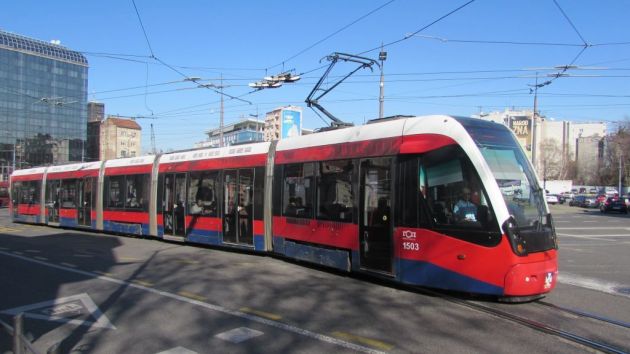New law on mandatory traffic insurance preparation for market liberalization – High costs worrying insurance companies
 Wednesday, 06.12.2017.
Wednesday, 06.12.2017.
 15:01
15:01

According to it, in the first nine months of 2017, a total of 759 complaints were filed, more than a third of which pertains precisely to automobile liability insurance.
However, it is not only citizens that are dissatisfied with the way this type of insurance works. Insurance companies, representatives of the state, the Tax Administration, the National Bank of Serbia and others have also made complaints.
It is therefore not surprising that all the parties are ready for the new law to regulate this field to be adopted as soon as early 2018, thereby removing, they hope, all the flaws of the regulations adopted in 2009.
How important this topic is not just for the insurance industry, but for the society as a whole, is shown by the data presented by Dusko Jovanovic, Secretary General of the Association of Serbian Insurers at the Serbian Insurance Days in Arandjelovac.
According to the data, in as many as 14,000 of 35,000 traffic accidents a year, personal injuries are registered in addition to the material damage. Each year, 600 people are killed on Serbian roads, and of the several thousand of those injured, as many as 3,500 sustain severe injuries.
As all participants at the round table dedicated to the Law on Mandatory Traffic Insurance agreed, this problem requires a new legal solution.
The local market currently has 10 insurance companies that offer automobile liability insurance policies, and the total premium amounted to around RSD 30 billion (around EUR 243 million) last year, a growth of 4.3% compared to a year before.
The average automobile liability insurance premium amounted to RSD 12,820 (EUR 104), a lower amount compared to that in Montenegro (EUR 169), B&H (EUR 152), Croatia (EUR 130) and Slovenia (EUR 129).

– The average premium dropped by as much as 37% between 2013 and 2016, which has had a strong impact on the operations of insurance companies, considering that this type of insurance is among the most important ones in Croatia – Paukovic said.
Zoran Blagojevic, President of the Executive Board of Wiener Stadtische Osiguranje, believes that the new law will be a transitional step towards the liberalization of the market and that insurance companies will have to “work a lot on expenditure control” in this segment during this period, due to the expected drop in premiums.
The most problematic expense, according to the heads of local insurance companies, is the sale of automobile liability insurance through vehicle inspection.
The value of this business is shown by the fact that there are currently five time more vehicle testing stations than in 1991 and eight times more compared to the countries of the region that are EU members.
Due to their operations and the high income realized through commissions for the sale of policies, the Tax Administration has penalized both them and insurance companies.
Amendments to the Law on Traffic and especially to the regulations on vehicle inspection should further regulate this field, as the sale of policies this way is largely unknown in Europe.
In Italy, for example, new vehicles do not undergo technical inspection in the first two years at all and drivers buy policies for their vehicles by themselves, explains Dragan Filipovic of Generali Osiguranje. This also raises awareness of the importance of insurance among citizens, he adds.
Filipovic also emphasizes that all automobile liability insurance-related problems impede the development of the entire insurance industry.

According to Dragan Markovic, President of the Executive Board of Triglav Osiguranje, insurance companies are partly responsible for the current state. He says that it is not sustainable for up to 90% of the sale of these policies to go through external channels, as is the case today.
This kind of a sales structure leads to high expenses which might even bring into question the sufficiency of policies.
The data show that there were 2.4 million insured vehicles of an average age of 17 years on the roads of Serbia last year, that is, that there are around 312 vehicles to 1,000 Serbian citizens.
Seeing how the said share is considerably lower than the European average, it is to be expected that the number of cars on Serbian roads will grow, and with them the probability of traffic accidents.
Also, a growth of the limits for damage payments is expected as well. Mirko Petrovic, the head of Dunav Osiguranje, says that the limits in the EU have grown on average by around 35% in five years and that, in cases of full disability, they exceed amounts of several million euros in certain countries.
Quicker damage payment
Among the most important issues to be solved is making the damage payment quicker and defining responsibility in traffic accidents.
For this reason, Dusko Jovanovic says, “all the traffic accident records will be in digital form beginning with January 1, 2018, and the Ministry of Internal Affairs will be forwarding them to the Association of Serbian Insurers”.
– Once the ministry submits the data, traffic accident site records will be further sent by the association to insurance companies and citizens who have suffered damage – he explains.
Two guarantee funds to be discontinued
The new law should also abolish the provision of there being two guarantee funds, which, in fact, has never been put to practice.
Representatives of insurance companies in Serbia believe that only one guarantee fund is needed and that it should be managed by insurers, which the NBS agrees with.
Srdjan Milovanovic, director of the Insurance Supervision Department at the NBS, said that the fund was very important, as money to third damaged parties was paid from it, and added that expenditures needed to be taken into consideration in order not to jeopardize damage payment.
Also, one of the ideas is to reduce the expenditures for the National Health Insurance Fund from the current 5% to around 1.5% by the new law.
Milos Vlahovic
 Narodna banka Srbije Beograd
Narodna banka Srbije Beograd
 Poreska uprava Srbije
Poreska uprava Srbije
 Hrvatski ured za osiguranje
Hrvatski ured za osiguranje
 RepubliÄŤki fond za zdravstveno osiguranje Beograd
RepubliÄŤki fond za zdravstveno osiguranje Beograd
 Ministarstvo unutrašnjih poslova Republike Srbije
Ministarstvo unutrašnjih poslova Republike Srbije
 Dunav osiguranje a.d.o. Beograd
Dunav osiguranje a.d.o. Beograd
 Triglav osiguranje a.d.o. Beograd
Triglav osiguranje a.d.o. Beograd
 Generali Osiguranje Srbija a.d.o. Beograd
Generali Osiguranje Srbija a.d.o. Beograd
 DDOR NOVI SAD a.d.o
DDOR NOVI SAD a.d.o
 Wiener Städtische osiguranje a.d.o. Beograd
Wiener Städtische osiguranje a.d.o. Beograd
 UdruĹľenje osiguravaÄŤa Srbije Beograd
UdruĹľenje osiguravaÄŤa Srbije Beograd
Most Important News
06.04.2024. | Agriculture
Preconditions for Placement of Fresh Blueberries and Dried Plums in Chinese Market Secured

16.04.2024. | News
Jovan Ciric, Leasing Director Retail MPC Properties – MPC Echo symbolizes our desire for good ideas and innovative endeavors to spread freely and bring about positive changes

16.04.2024. | News
10.04.2024. | Finance, IT, Telecommunications, Tourism, Sports, Culture
Creative Industry – What This Serbian Economy Sector Worth EUR 2 Billion Encompasses

10.04.2024. | Finance, IT, Telecommunications, Tourism, Sports, Culture
18.04.2024. | Industry, Finance
Here come the new hunters for Serbian gold – Australian Strickland Metals buys mining project on mountain Rogozna

18.04.2024. | Industry, Finance
16.04.2024. | News
Economy Fair in Mostar opens – 26 companies from Serbia exhibiting

16.04.2024. | News
18.04.2024. | Transport
Jovanovic: Purchase of Siemens trams produced in Kragujevac for GSP Beograd should be considered

18.04.2024. | Transport


 Izdanje Srbija
Izdanje Srbija Serbische Ausgabe
Serbische Ausgabe Izdanje BiH
Izdanje BiH Izdanje Crna Gora
Izdanje Crna Gora


 News
News






